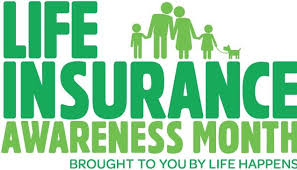Research released earlier this year by Lincoln Financial Group shows that while women place high importance on planning for retirement and their family’s future, they are facing gaps that are keeping them from reaching the positive outcomes they seek. According to the Love and Responsibility Survey, most women have good intentions when it comes to creating positive financial outcomes for themselves and their loved ones. Most say they are prioritizing planning for their retirement (90%) and their family’s future (84%); yet over seven in 10 feel they are not doing a very good job with either. In fact, 70 percent of women are worried they will run out of money in retirement – and among them, only 20 percent say they have put a plan in place to manage this concern.
“The good news is that consumers recognize the importance of the financial planning process, but there is still a disconnect between their thoughts and actions,” said Jamie Ohl, executive vice president, president Retirement Plan Services, Lincoln Financial Group. “Savers are faced with many competing financial priorities, and we want to encourage people to set goals, save more, and then help them understand how what they’re saving now will translate into income in retirement.”
Barriers to financial planning
Women cited the following barriers to the financial planning process:
- Current expenses make it hard to set aside money for the future (58%)
- Lack of time for financial planning (44%)
- Feeling less educated about retirement planning (52%) and personal financial planning (55%) than they should be
In addition, women’s knowledge of certain financial products and solutions is lower than men’s in specific areas. For example, women acknowledged knowing very little or nothing about annuities (61% versus 45% men) and long-term care (50% versus 41% men).
Men and women vary when it comes to their top sources for financial information. While women rank their significant other or spouse (42%) as their number one source, men say that financial professionals are their go-to (37%). Both women and men prefer not to discuss finances with others, but 72 percent are open to working with a financial advisor to help them plan for the future. “Being educated and working with a professional advisor is the best route for many Americans in order to receive the support and advice they need to maintain their lifestyle in retirement,” said Kavanaugh.
Results of the 2018 Lincoln Love & Responsibility Survey are based on an online survey of 2,393 Americans, ages 18+. The survey was conducted by Whitman Insight Strategies on behalf of Lincoln Financial Group last year.








.png?width=300&height=300&name=CC%202025%20Ad%20(300%20x%20300%20px).png)
.png?width=300&height=600&name=Tax%20Talk%20Graphic%20-%20email%20tower%20(300%20x%20600%20px).png)



.png?width=300&name=NAIFA-FSP-LH%20with%20tagline%20-%20AT%20blog%20email%20ad%20(300%20x%20250%20px).png)
.png?width=728&height=89&name=2024%20Congressional%20Conference%20(728%20x%2089%20px).png)
